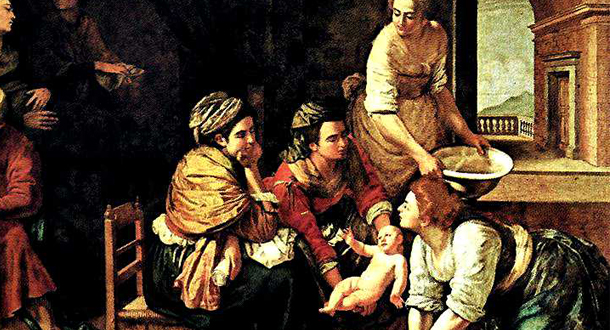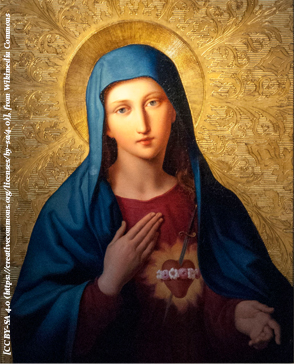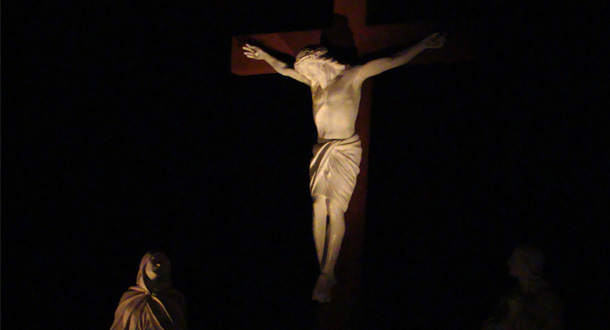 Nativity of Saint John the Baptist
Nativity of Saint John the Baptist
Scripture:
Isaiah 49:1-6
Acts 13:22-26
Luke 1:57-66, 80
Reflection:
The Abyss of God’s Mercy
“He shall be called John.” LK 1:60 My mother used to call me my full Christian name, Robert John, when she was upset with me. If I knew my Hebrew for John when I was a little boy I would be comforted when I heard that name. The Hebrew name for John is a combination of Jah (God) and hanan (mercy)! God is merciful.
One of the most frequent prayers in Scripture is “Lord have mercy on me”. In Hebrew it is expressed in one word: “hanani” “Have mercy on me!” In the Old Testament one of the most known uses is in Psalm 51:1. “Be merciful to me “hanani”, O God, according to Your lovingkindness (kesed); According to the greatness of Your compassion (raḥămîm) blot out my transgressions.” What is of special notice this line mentions three important words for mercy! The first word is ḥānan which has the connotation of undeserved graciousness. The second word for mercy is Kesed which has a strong association with faithful love. The third word used in this line is raḥămîm which means a deep compassionate love like that of a parent. All these words can be translated into mercy but each has strong nuances. By these three words alone mercy is treated an amazing 568 times in Old Testament! In the New Testament mercy is treated mainly by four different words 127 times!
We must all live on the edge of God’s mercy. We must not be afraid to jump into the abyss of His kindness. There is a great democracy among all of us. We all exist on the margins of God’s mercy. Paul said it well: “For he says to Moses, “I will have mercy on whom I have mercy, and I will have compassion on whom I have compassion.” So then it depends not on human will or exertion, but on God, who has mercy.” Rom 9:15 God’s mercy is our ultimate reality! This is true not just because we have sinned and need forgiveness, but our very existence is an effect of His mercy. “Every good gift and every perfect gift is from above, coming down from the Father of lights with whom there is no variation or shadow due to change.” James 1:17 “But God, being rich in mercy, because of His great love with which He loved us.” EPH 2:4
“Mercy: the ultimate and supreme act by which God comes to meet us.” Misericordiae Vultus #2 Pope Francis
Fr. Bob Weiss, C.P. preaches Parish Missions and is a member of the Passionist Community in Louisville, Kentucky.

 Scripture:
Scripture:


 Scripture:
Scripture: Scripture:
Scripture: Scripture:
Scripture: